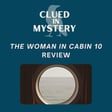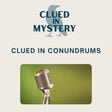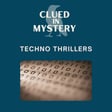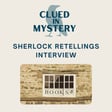
The Detection Club
Cluesletter publisher Manon Wogahn joins Brook and Sarah to discuss the Detection Club, the oldest running society of mystery authors. Learn more about Manon at https://www.manonwogahn.com/.
Books referenced (in order of mention)
Edwards, Martin (2015) The Golden Age of Murder. Harper Collins.
Milne, A.A. (1922) The Red House Mystery
The Detection Club (2020) Howdunit: A Masterclass in Crime Writing by Members of the Detection Club. Collins Crime Club.
Marple: 12 New Mysteries (2022) William Morrow
The Detection Club (2013) Six Against the Yard. Harper Collins.
Resources and research references
BBC Radio 4 - Drama, Eric the Skull
https://martinedwardsbooks.com/home/about-martin/martins-writing/the-detection-club/
https://www.theguardian.com/books/2020/feb/04/dorothy-l-sayers-and-the-detection-club
Shedunnit Podcast by Caroline Crampton; The Detection Club, Aug. 2020. Interview with Martin Edwards.
Pipeline Comics Podcast, Episode 50 The Detection Club, May 2020. Reviews Graphic Novel The Detection Club, by Jean Harmbat where members of the club are put in a closed room murder mystery on a deserted island.
For more information: cluedinmystery.com
Instagram: @cluedinmystery
Contact us: hello@cluedinmystery.com
Music: Signs To Nowhere by Shane Ivers - //www.silvermansound.com
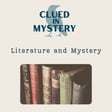
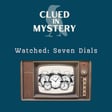
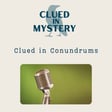
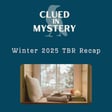
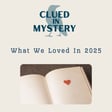
![[Re-release] Anthony Berkeley image](https://media.zencastr.com/cdn-cgi/image/width=112,quality=85/image-files/61e1c276e3ec42007857cff9/e7c778ac-a2ba-4809-9a5c-7cd39d167834.jpg)
![[Bonus] Wake Up Dead Man image](https://media.zencastr.com/cdn-cgi/image/width=112,quality=85/image-files/61e1c276e3ec42007857cff9/e276ac32-e664-464f-956c-7699bdb60aa5.jpg)
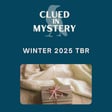
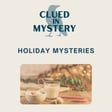
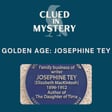
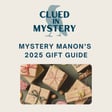
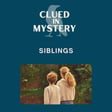

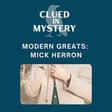
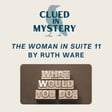
![[Bonus] Read Along: Daughter of Time image](https://media.zencastr.com/cdn-cgi/image/width=112,quality=85/image-files/61e1c276e3ec42007857cff9/b953ad72-c43e-48ca-a18a-b3c216ab90ee.jpg)
